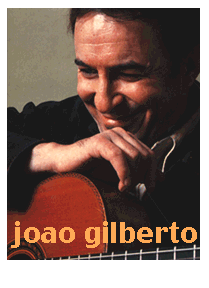 http://www.slipcue.com/music/brazil/gilberto.html
http://www.slipcue.com/music/brazil/gilberto.html
One of the coolest guys to ever have walked the face of the planet, guitarist and vocalist Joao Gilberto sauntered into international celebrity during the late 1950s, whispering his lyrics and slowing the samba down to match his unique style of syncopated acoustic guitar. Above all, Joao Gilberto was cool, embodying an ultrasuave hipness which put to shame all the U.S. beatniks and jazz cats of the time. When Joao met up with songwriter Antonio Carlos Jobim, they recorded the song "Chega de Saudade," and bossa nova was born. Within the first few years of his recording career, Gilberto became a household word, especially after jazz saxophonist Stan Getz adopted bossa nova as his signature sound, and recorded with Joao and his wife Astrud Gilberto. These albums created a huge craze for bossa nova-flavored jazz.
Gilberto is one of the guiding lights of Brazilian pop, idolized over the years by generations of other artists such as Caetano Veloso and Gilberto Gil. Over the years, he has remained one of the most unusually consistent of the Brazilian superstars. Seldom do his records suffer; more often than not, they simply soar.
"Chega de Saudade" (Odeon Brasil, 1959)
Gilberto's first record,
and the first bossa nova album. This was made only after Antonio Carlos Jobim
browbeat the Odeon execs into giving his pal some studio time. Jobim had been
writing songs with poet Vinicius de Moraes,
but it wasn't until they met the acoustic guitarist Gilberto, with his radically
minimalist delivery, that everything clicked into place. The title track --
written by Jobim -- became an international smash, along with songs such as
"Desafinado" and "Girl From Ipanema," which were recorded by U.S. jazz stars
Stan Getz and Charlie Byrd. Joao Gilberto's original acoustic versions are
completely captivating... like magic. This album, along with his next two on
Odeon, have been re-released on a single CD on the World Pacific label.
"O Amor, O Sorriso e A Flor" (Odeon Brasil, 1960)
More fabulous
early bossa nova; also included on the "O Mito/Legendary Joao Gilberto" CD
reissue.
"Joao Gilberto" (Odeon Brasil, 1961)
More fabulous early bossa
nova; also included on the "O Mito/Legendary Joao Gilberto" CD reissue.
"Brazil's Brilliant Joao Gilberto" (Capitol, 1961)
"Boss of the Bossa Nova" (Atlantic, 1962)
American edition of the
1961 Odeon album, "Joao Gilberto."
"The Warm World of Joao Gilberto" (Atlantic, 1963)
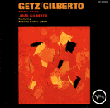
Stan Getz/Joao Gilberto/Astrud Gilberto "Getz/Gilberto" (Verve,
1963)
THE classic jazz-bossa nova crossover album, against which all
others are measured. Almost shockingly intimate, with every tremble of the
saxophone reed intact, this 1963 collaboration with Stan Getz and Joao Gilberto
contains complete take of the #1 hit, "The Girl from Ipanema," which is the
version most folks in the States are familiar with, and which helped make Astrud Gilberto a
household name in America. Her hubby Joao's guitar work and whispery vocals are
the ultimate in melodic cool. Tom Jobim plays piano, in one of his sweetest
performances, and percussion by Milton Banana is a study in economy. There are
zillions of pressings and reissues of this album; the latest CD version, from
1997, features 20-bit mastering and sounds pretty damn nice.
"Herbie Mann & Joao Gilberto" (Atlantic, 1965)
A bit
misleading: this is actually a repackaging of previously released stuff, along
with some tracks by Herbie Mann, accompanied by Jobim and Baden Powell. Mann and
Gilberto don't actually collaborate on this album.
"Getz/Gilberto v. 2" (Verve, 1966)
The live version of the
Getz-Gilberto magic, recorded October 9, 1964 at Carnegie Hall. The magic is
there, although the studio album is better.
"Joao Gilberto en Mexico" (Orfeon, 1970) (Issued in Brasil as Joao
Gilberto and later as En Mexico by Polygram, in 1974)
A
predictably smooth, low-key album, with a faint pop gloss. Features a bossa
nova-ed version of Irving Berlin's "Trolley Song," which is as absurd as it is
amusing. Joao also tackles "Besame Mucho", which he would reprise on his 1977
Amoroso album. This is not as haunting an album as 1973's "Joao
Gilberto", but still quite nice.
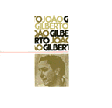
"Joao Gilberto" (Polydor Brasil, 1973)
A hauntingly quiet,
beautiful, and -- dare I say it? -- ethereal album. One of the best Brazilian
records ever recorded. Sparse and gentle, graceful beyond the reach of
practically any other musician alive, this includes revamped acoustic takes on
several bossa oldies, along with newer material such as his lullaby for
his young daughter, Bebel. Next to his debut albums of the 1950s, this is
probably the best work Gilberto ever did -- and that's saying a lot! HIGHLY
recommended!
Stan Getz/Joao Gilberto "Best of Two Worlds" (Columbia,
1976)
Standard-issue light jazz, combined with Gilberto's stunning
soulfulness. Joao's second wife, vocalist Miucha, sings on a
couple of tracks, and her contributions are -- frankly -- negligible. Getz, too,
isn't exactly electrifying. But when Gilberto sings and plays guitar, this album
lights up. Worth checking out.
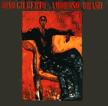
"Amoroso" (Warner/WEA Brasil, 1977)
A lovely, dreamy, bossa nova
album, with mellow, understated strings by jazz arranger Claus Ogerman. Solid,
unobtrusive multi-track production gives this the weight of state-of-the-art
70's pop, but never to the detriment of Gilberto's gentle approach. Ogerman's
arrangements are less challenging here than on his earlier, moodier albums with
Jobim; they accentuate rather than dominate the tunes, and though this is
undeniably cheesy, it's also great. Just the thing to have on during a lazy
afternoon at home.
"Gilberto and Jobim" (1977, USA)
Collection of previously released
material from old albums by these two bossa pioneers.
"Joao Gilberto Prado Pereira de Oliveira" (WEA Brasil, 1980) (CD reissue:
1998)
A gorgeous live performance from 1980. Mainly a solo acoustic
concert, though several tracks have eerie string arrangements, each by a
different arranger (Dori Caymmi, Joao Donato, Gaya, and Guto Graca Mello...)
Joao is at his most hushed and evocative, and while the songs are mainly
standards, they all sound fresh and new. One of Gilberto's guest vocalists is
his (very young) daughter Bebel; Rita Lee also contributes a very restrained,
lovely harmony on a version of "Jou Jou Balangandas". The 1998 CD reissue
includes several extra tracks.
"Brasil" (Warner, 1981)
MPB luminaries Caetano Veloso, Gilberto
Gil, Maria Bethania pitch in on this rapturously reserved bossa nova
album, which marked Gilberto's return to Brazil after several years abroad. Very
listenable and highly recommended. It's much to his credit that Gilberto was
able to calm these tropicalia stars down and get such fine, understated
performances out of them at a time when MPB in general was becoming overwrought
and either cheesily or frantically overproduced.
"Amososo/Brasil" (1985, Brasil)
Great praise and adulation to
whoever thought of releasing these two gentle masterpieces together on one CD.
Lovely stuff -- and such a bargain!
"Interpreta Tom Jobim" (1985)
Contains previously released
material.
"Meditacao" (EMI Brasil, 1985)
More previously released
material.

"Joao Gilberto Live in Montreux" (WEA Brasil, 1986)
Double CD
recorded live at the Montreux Jazz Festival, July 18, 1985. A hushed, stately
performance.
"Joao Gilberto Live in Montreux" (Elektra, 1987)
The American
edition of the same concert as above, but with only one disc and half the
material. Still quite nice.
"Joao" (Polydor, 1991)
Gilberto's innate classiness is sometimes at
odds with the ornate modern production of this poppy album. Though an elegant,
low-key set, this album drifts into rather cheesy territory. Worth checking out,
but one of his few questionable albums.
"Ao Vivo - Eu Sei Que Vou Te Amar" (Epic Brasil, 1994) (Sony,
1995)
Live album, recorded April, 1994, at the Palace Theatre in Sao
Paulo. Gilberto plays solo acoustic, drifting through stripped-down versions of
familiar hits and soft ballads. This disc is dreamy, though monochromatic -- its
main liability is the sound editing: overly quick applause fades and
unreasonably seamless segues undercut the spell Gilberto weaves as a performer,
in unnecessary hope of creating an illusion of slick perfection. His playing
should be enough, and the cut and splice act is a distraction. Nice record,
though.
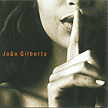
"Joao Voz e Violao" (Mercury, 1999/Verve, 2000)
Another gorgeous
acoustic album, featuring some new material along with many revisited classics
and favorites. Yeah, sure, there's not a lot new going on here, but when you're
dealing with absolute perfection, what more could you want... really? As ever,
Gilberto is a transcendant performer -- calm, unhurried, happy, playful. I
rushed out to get this record, and if you do as well, I guarantee you won't be
disappointed.
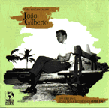
"O Mito" (EMI Brasil, 1988)
The Brazilian version of a disc
collecting Gilberto's first three Odeon albums ("Chega de Saudade," "O Amor, O
Sorriso e A Flor," and "Joao Gilberto.") Rapture. Greatness. Beauty. Grooviness.
They don't call him "the Myth" for nothing.
"The Legendary Joao Gilberto" (Capitol/World Pacific, 1990)
GOOD
LORD! Why is this CD out of print?? The domestic U.S. version of the incredible
O Mito retrospective, this single CD collection is just plain stunning.
It's unfathomable why Capitol has allowed this to lapse out of print, but if you
want to check out Joao Gilberto, this disc is the place to start.
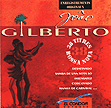
"38 Titres De Bossa Nova" (EMI/World Pacific-France, 1993)
Although
the cover art is truly butt-ugly, this French version of the fab O Mito
album is the one to shoot for -- at least until the licensing problems that are
keeping Capitol from re-releasing this collection stateside. I've had a few
readers tell me they've looked into it, and this is currently the only version
still in print.
"Personalidade" (Polygram Brasil, 1990)
A standard-issue best-of,
which certainly won't disappoint, but may pale in comparison to other, more
thoughtfully lavish, releases.

Bebel
Gilberto "Tanto Tempo" (Six
Degrees, 2000)
A major innovator of the integration of classic
Brazilian pop and modern electronica, Joao's daughter Bebel makes a worthy
heiress to the bossa nova throne. It's clear that she has inherited a
great deal of her father's musical grace and calm self-assurance. She has a
velvety voice that is ably complimented by the languorous, subtly high-tech
arrangements of electronica producers such as Amon Tobin, Smoke City, and the
late Brazilian mixmaster, Suba. There are a few misfires, including the closing
tracks which have a dated jazz-fusion feel reminiscent of the bland mid-'70s pop
efforts of Gal Costa and Flora Purim, but these are minor faults in a
richly-textured, luxuriant album that is true to classic Brazilian form yet also
strikingly innovative. The sparse acoustic arrangements are skillfully augmented
by tapes loops and sequenced bleeps and bloops that modernize the music while
retaining its original, unhurried, haunting grace.
Other Brazilian
Artists
Main Brazil
Index
World Music
Index